"The instructions referred will be both theoretical and practical, submarines now in commission being used for the practical work, and training will cover such periods of time as will be necessary to familiarize fully the personnel of a submarine and with the vessel to which they will be detailed."
When the USS Columbia joins of flotilla the USS Perry, now acting as the flagship, will be utilized as a tender for the submarines in commission. The USS Columbia was designed as a commerce destroyer, and she and her sister ship, the USS Minneapolis, were two of the fastest vessels in the world at the time of their conclusion.
The USS Columbia was one of the ships forming the flying squadron in the Spanish-American war. She has an overall length of 412 feet and a beem of 58 feet. Being commodious, she is an ideal vessel for the purpose for which he is about to be used.
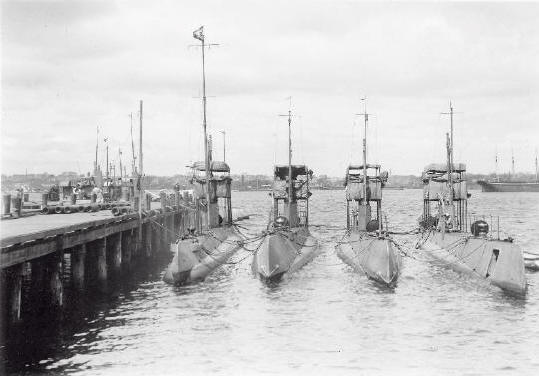
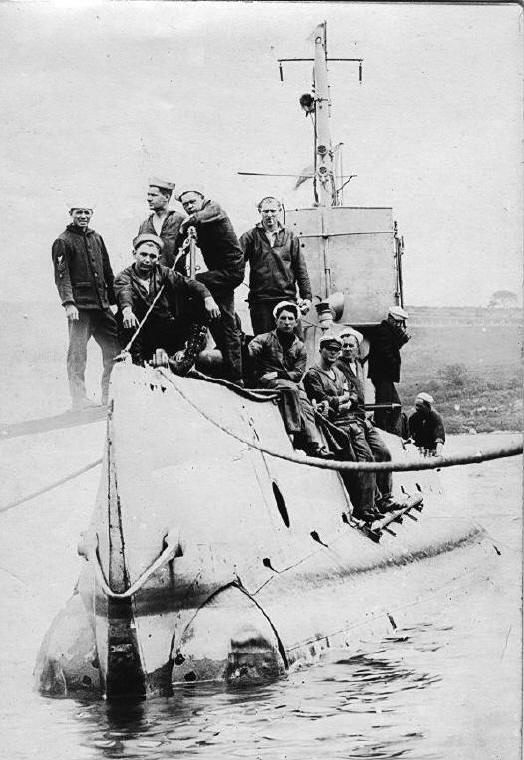
July 9
Six million men lost in the first year
The first year of the war in Europe is closing. A review of the results that stand out prominently is interesting at this time. The war to date, as shown by conservative estimates compiled from the best available reports, has caused a loss to the various belligerence of more than 6 million men, dead, wounded and prisoners, and
more than 500 ships. Of these about 120 were war vessels.
The outstanding results on land are these:
- The greater part of Belgium is under the control of Germany.
- Germany has been driven from the Far East.
- A part of the Dardanelles is in the possession of the Allied troops.
- Parts of France and Russia are in the possession of German troops.
- A strip of Alsace has been taken from Germany.
- On the continent of Africa parts of the territorial possessions have been lost by both sides.
- Various island possessions of Germany have been taken by the forces of Japan.
- Italian troops are in the possession of a strip of Austrian territory.
- The outstanding results at sea are:
- German and Austrian mercantile shipping has been forced from all the open seas.
- German and Austrian war vessels having a total displacement of approximately 257,000 tons have been destroyed.
- War vessels of the Allied nations having a total displacement of approximately 192,000 tons have been sent to the bottom.
- The greater part of the German and Allied fleets in the North Sea remain intact.
Except for communication via Holland and the Scandinavian nations, Germany is cut off from the rest of the world.
Efforts on the part of the Germans to place the British Isles in a similar predicament has resulted in the sinking by severing of hundreds of vessels flying the flags of the Allied and neutral nations.
The sinking in this manner of the Canard liner Lusitania, with a loss of more than 100 American lives, precipitated a request on the part of the United States that such practices, in so far as they might menace Americans, be stopped.
On August 2 1914 German troops entered Luxembourg and Germany demanded free passes for Belgian to the French frontier. This was refused and two days later Great Britain patch to Germany in ultimatum demanding that the neutrality of Belgium be maintained. The ultimatum was rejected, and the German forces attacked. On the same
day President Wilson issued a neutrality proclamation.
The following day Great Britain declared of war on Germany, and two days later the Germans entered Belgium and the French invaded southern Alsace.
These events were quickly followed by an affirmation on the part of Italy of her neutrality, by an Austrian invasion of Serbia and by the sending by Japan of an ultimatum to Germany. This has to do with the German possessions in China.
By August 17 the first British expeditionary force had completed its landing in France, and on that day there began also fierce battle between the Austrians and Serbians troops. Victory was with the Serbian arms after five days of fighting, and the Austrians were routed.
In the meanwhile German and Austrian troops had met the Russians. The German army under Gen. von Hindenburg defeated another Russian force in the battle of Tannenburg which lasted three days.
Two days after the French government moved to Bordeaux, out of fear of Paris falling, the battle of the Marne was begun, and Russian troops succeeding in occupying Lemberg, the capital of Galicia..
Before the French and English troops the Germans in France were forced to retreat as far as the Aisne. Events for the next few days included the bombardment of Rheims by the Germans and the sinking by a German submarine other British cruisers Aboukir, Cressy, and Hogue. On the same day the Russian troops attacked Przemysl.
British troops from India were landed at Marsellies on September 26 and were immediately dispatched to the northward. Before their arrival at their destination the Germans have begun a siege of Antwerp, which resulted in the Belgian government moving to Havre, France.
German cruisers which have been stationed in foreign wars at the opening of the war had by that time given a good account of themselves. The Emden, operating in the Indian Ocean an adjacent waters, overtook a score a merchant ships belonging to the nations Allied against Germany before she was finally run down and destroyed.
In the Atlantic several auxiliary cruisers performed similar duties. They, too, were subsequently sent to the bottom by escort ships.
On the land the armies of the belligerents settle down to hold their position for the winter months. In East Prussia, during the winter there was severe fighting, resulting in the loss of many men, dead, wounded and captured. The German armies operating in East Prussia held off a Russian army of vast proportions, finally
driving it back well into its own territory.
On the sea a British squadron defeated the German squadron which was victorious off Chile. This engagement took place off the Falkland Islands. German submarines became especially active in the winter months, sinking many allied warships and merchantmen.
On May 23 Italy declared war on Austria after having announced earlier in the month her treaty with that nation. The declaration of war was quickly followed by raise on the Italian coast cities by Austrian arrow points. The Italian army struck across the border into Austria.
July 16
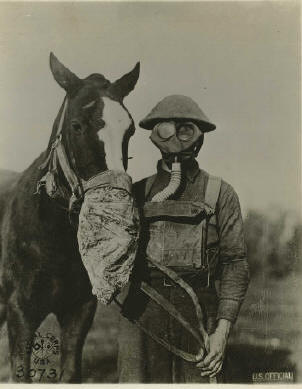 Saw Gas wiped out 1,000
Saw Gas wiped out 1,000
Henry Lampiere, 16, an American citizen, who served 218 days with British colors, has returned with the first story told by a soldier of actual experience with the German asphyxiating gasses.
Lampiere was seized with the war fever last August and enlisted, posing as a Canadian. Recently his mother learned of the boys whereabouts, and through the representation of the US ambassador in London obtained his discharge.
Lampiere took part in the battle of Ypres, when the Germans first used the deadly gases.
"We advanced in extended order, running, dropping in firing, then going forward again. We were almost on the German trenches when we noticed clouds of sulfur colored smoke drifting down the wind in our direction. All at once our men began to counter and crumble up by the scores.
On all sides the soldiers dropped with hardly a sound and with no sign of injury. The field was a shambles. But our officers kept her head and ordered the men to hug the ground until the poisonous vapors pass over.
The gas eat away our line and exposed the battalion to an enfilading fire from the German machine guns on our right flank. More than half our soldiers were down from the gas fumes and the crossfire wiped out most of the rest. We went into the battle with 1,100 men they came out with a bare hundred 50 survivors.
We lay flat on the turf until the wind shifted slightly, blowing back part of the gas clouds towards a German machine-gun section. Then we crawled on hands and knees more than 150 yards to a place of safety. I had to be treated for gas inhalation. Many of my comrades who crawled back to our trenches afterwards died with
horrible suffering."
July 22
War exhausting supply of horses
The war has depleted the supply of high class American forces is pointed out by F. C. Strugis, the vice-chairman of the Jockey club who has responsibility of that organization is pure a breeding in New York State.
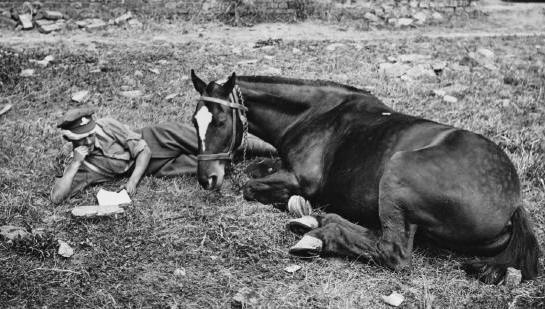
"The economic waste the struggle has created is not generally realized," said Mr. Sturgis. "The announcement that we have exported $59 million worth of horses and mules since the war started would not mean much except to the initiated, but it takes on tremendous importance when we learn that during the entire period of the
Boer war, which lasted from October 1899, to June, 1902, the British government purchase all told 470,600 horses, of which we supplied 109,839. During the same time. They brought 149,000 mules of which we furnished 81,524."
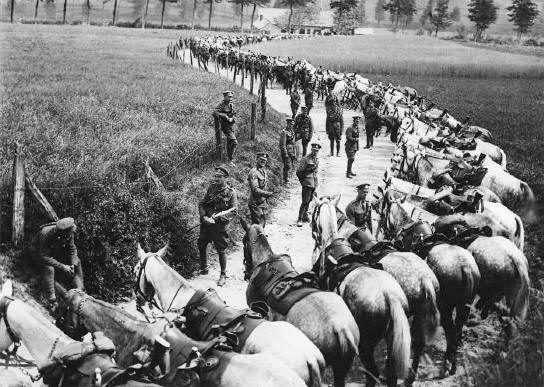
"It appears from this that the United States has furnished for Great Britain, France and England in the period of 10 months passed almost as many horses and mules as the British government brought in all countries during the almost 3 years of hostilities in South Africa. When the hundreds of thousands of horses purchased by
other countries are considered and it will be remembered that the average life of a horse than the actual war zone is but 10 days, some idea of the necessity of stimulating the breeding interest is apparent."
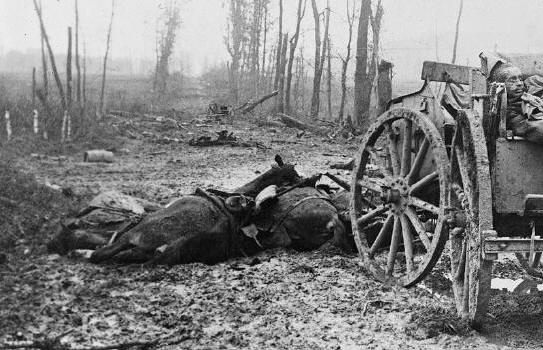
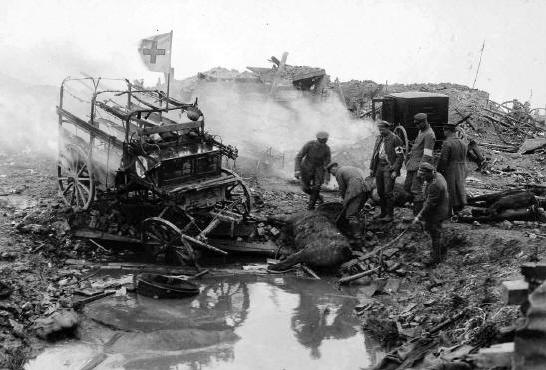
"Something idea of the rate at which the horse his been eliminated may be gathered by references to statistics in connection with the Army of the Potomac during the Civil War, he continued. The record show that there were 30 Calvary regiments whose effective strength buried during the six months from May to October between
10,000 and 14,000 men. This body of cavalry required the following remounts; May: 5,730; June: 6,327, July: 4,716, August: 5,499, September: 5,829, and it October: 7,336, indicating a loss of 2 and a half horses per man, or a ratio of five horses per year. The Secretary or a War in commenting on this said: "if a similar state of affairs exists
throughout all our Calgary its 233 regiments would require 435,000 horses annually."
"In comparison with the world strife now prevailing," continued Mr. Sturges, "the Civil War seems trivial and the situation is one that should fill every breeder of horses with a sense of duty he owes his country. The horses is a necessary accessory of our everyday life, but in war he is as indispensable as ammunition or food.
July 29
Germans continue to buy American horses
Representatives of all the principal nations at war in Europe are combing the West for horses for the armies. Several of the horse buyers bear titles; the majority of them are men who have been at the heads of great establishments in Belgium and France. One who was recently in Lincoln was paid two dollars a day and expenses
for his work. Before the war he drew $10,000 a year as manager of the great breeding stable in Normandy.
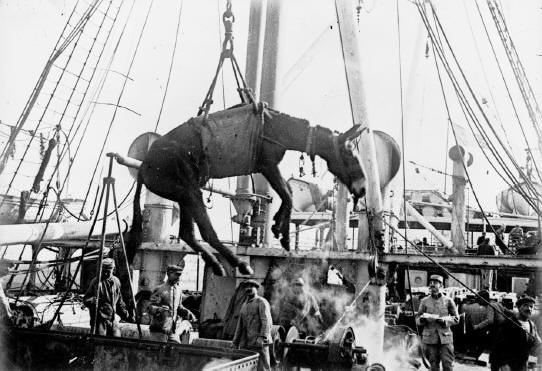
How the few German buyers get their purchases through is a mystery, and they refuse to elaborate. They may complain that that is their own business, and they keep on buying. Some of the largest dealers in this section have been asked to bid on 25,000 head shipment for the German government payable by drafts of New York.
In the beginning, speculators and businessman jumped into the game, taking large contracts with subcontracts. The ruling price for the grades desired were $150 and $175 per head, subject to inspection, which was very rigid, and a large portion of each shipment was rejected. Rather than carrying these back to the west the
dealer sold them at the point of shipments for what they could get.
That there are horse traders in Europe and dealers with sharp eyeteeth was provided by the fact that a number of these rejected animals were shipped to Europe, the purchasers being government agents, who took this means of showing American dealers some tricks in horse buying, purchasing in the guise of contractors who desired
the animals for the Northwest.
The fact that the greater part of the supply in the West has already been purchased or is in the hands of speculators, holding for the raise they feel certain will come with a continuation of the war, has led to a lowering down of the inspection bars. Hundreds of animals that formally would have not received a second look are
now going through. Stable boys say that fat ones are given preference.
White and Gray horses are taboo because they are shiny marks on the battlefield. The one thing the buyers are particular about is wind. They require swift galloping for a block or two before the inspector decides.
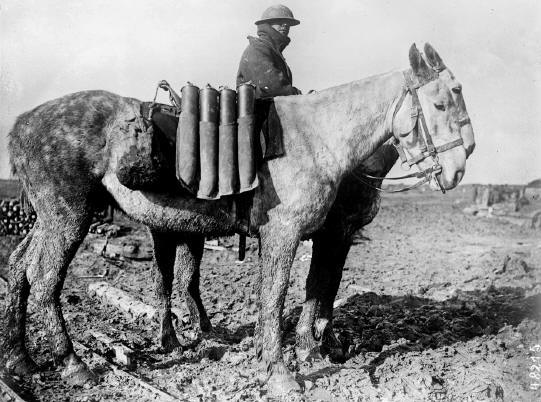
Read past editions of News Reports From the Front
Have a newspaper clipping on a event that took place in Emmitsburg?
If so, send it to us at history@emmitsburg.net